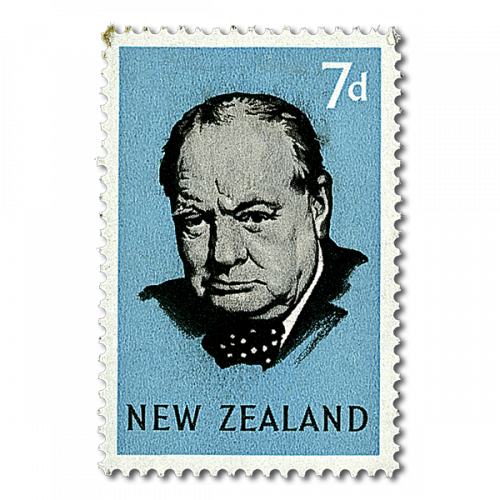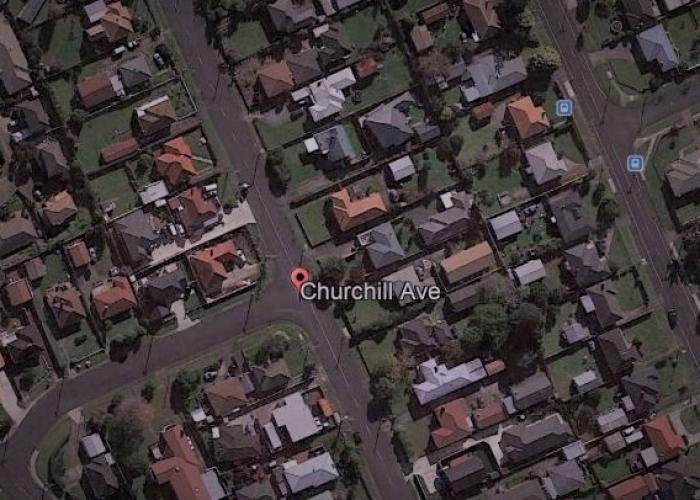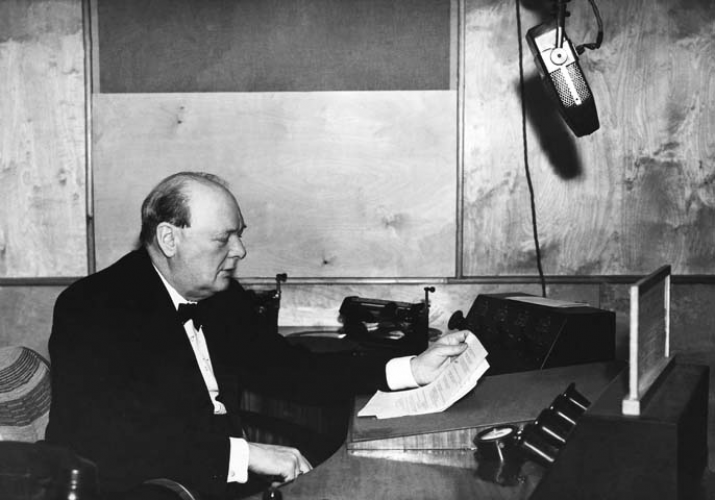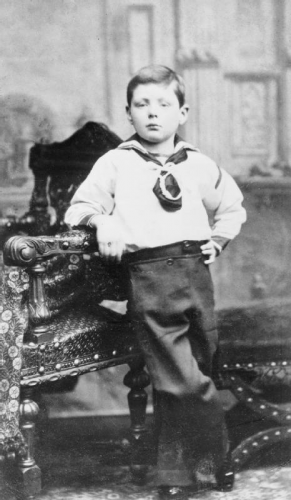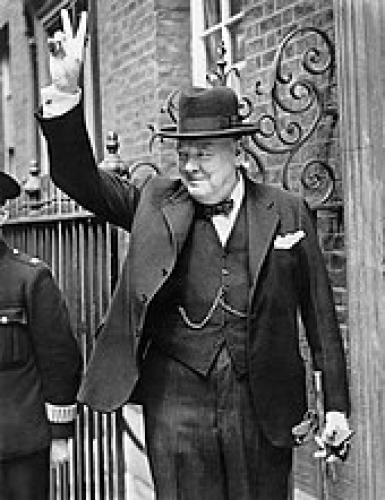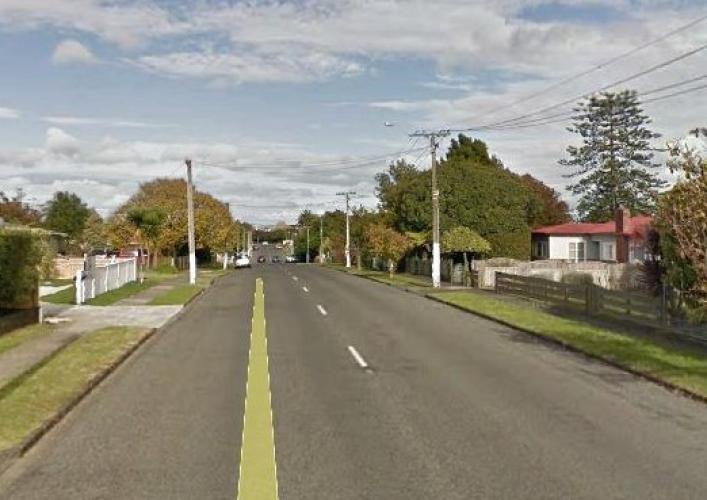170 Churchill Avenue, Manurewa, street view 2018
Reason for the name
This Avenue in Manurewa was named in honour of Sir Winston Leonard Spencer-Churchill, British wartime leader in WW2.
Sir Winston Leonard Spencer-Churchill (30 November 1874 – 24 January 1965) was a British politician, army officer, and writer, who was Prime Minister of the United Kingdom from 1940 to 1945 and again from 1951 to 1955. As Prime Minister, Churchill led Britain to victory in the Second World War (WW2). Churchill represented five constituencies during his career as Member of Parliament (MP). Ideologically an economic liberal and British imperialist, he began and ended his parliamentary career as a member of the Conservative Party, which he led from 1940 to 1955, but for twenty years from 1904 he was a prominent member of the Liberal Party.
It was as a Wartime leader in WW2 that Churchill was recognised in New Zealand with the naming of many streets in his honour. He never visited New Zealand.
Author: The Poppy Places Trust
Born in Oxfordshire to an aristocratic family, Churchill was a son of Lord Randolph Churchill and Jennie Jerome. Joining the British Army, he saw action in British India, the Anglo–Sudan War, and the Second Boer War, gaining fame as a war correspondent and writing books about his campaigns. Elected an MP in 1900, initially as a Conservative, he defected to the Liberals in 1904. In H. H. Asquith's Liberal government, Churchill served as President of the Board of Trade, Home Secretary, and First Lord of the Admiralty, championing prison reform and workers' social security. During the First World War, he oversaw the Gallipoli Campaign; after it proved a disaster, he resigned from government and served in the Royal Scots Fusiliers on the Western Front. In 1917 he returned to government under David Lloyd George as Minister of Munitions, and was subsequently Secretary of State for War, Secretary of State for Air, then Secretary of State for the Colonies. After two years out of Parliament, he served as Chancellor of the Exchequer in Stanley Baldwin's Conservative government, returning the pound sterling in 1925 to the gold standard at its pre-war parity, a move widely seen as creating deflationary pressure on the UK economy.
Out of office during the 1930s, Churchill took the lead in calling for British rearmament to counter the growing threat from Nazi Germany. At the outbreak of the Second World War, he was re-appointed First Lord of the Admiralty. Following Prime Minister Neville Chamberlain's resignation in 1940, Churchill replaced him. Churchill oversaw British involvement in the Allied war effort, resulting in victory in 1945. His wartime response to the 1943 Bengal famine, which claimed an estimated three million lives, has caused controversy, and he sanctioned the 1945 bombing of Dresden, which claimed twenty to thirty thousand lives and continues to be debated. After the Conservatives' defeat in the 1945 general election, he became Leader of the Opposition. Amid the developing Cold War with the Soviet Union, he publicly warned of an "iron curtain" of Soviet influence in Europe and promoted European unity. He was re-elected prime minister in the 1951 election. His second term was preoccupied with foreign affairs, including the Malayan Emergency, Mau Mau Uprising, Korean War and a UK-backed Iranian coup. Domestically his government emphasised house-building and developed an atomic bomb. In declining health, Churchill resigned as prime minister in 1955, although he remained an MP until 1964. Upon his death in 1965, he was given a state funeral.
Widely considered one of the 20th century's most significant figures, Churchill remains popular in the UK and Western world, where he is seen as a victorious wartime leader who played an important role in defending liberal democracy from the spread of fascism. Also praised as a social reformer and writer, among his many awards was the Nobel Prize in Literature. Conversely, his imperialist views—coupled with his sanctioning of human rights abuses in the suppression of anti-imperialist movements seeking independence from the British Empire—have generated considerable controversy.
"We shall never surrender"
On 10 May 1940, hours before the German invasion of France by a lightning advance through the Low Countries, it became clear that, following failure in Norway, the country had no confidence in Chamberlain's prosecution of the war and so Chamberlain resigned. The commonly accepted version of events states that Lord Halifax turned down the post of prime minister because he believed he could not govern effectively as a member of the House of Lords instead of the House of Commons. Although a prime minister does not traditionally advise the King on a prime minister's own successor, Chamberlain wanted someone who would command the support of all three major parties in the House of Commons. A meeting between Chamberlain, Halifax, Churchill, and David Margesson, the government Chief Whip, led to the recommendation of Churchill, and, as constitutional monarch, George VI asked Churchill to be prime minister. Churchill's first act was to write to Chamberlain to thank him for his support.
Churchill was still unpopular with many Conservatives and the Establishment, who opposed his replacing Chamberlain; the former prime minister remained party leader until dying in November. Churchill probably could not have won a majority in any of the political parties in the House of Commons, and the House of Lords was completely silent when it learned of his appointment. Ralph Ingersoll reported in late 1940 that, "Everywhere I went in London people admired [Churchill's] energy, his courage, his singleness of purpose. People said they didn't know what Britain would do without him. He was obviously respected. But no one felt he would be Prime Minister after the war. He was simply the right man in the right job at the right time. The time being the time of a desperate war with Britain's enemies."
An element of British public and political sentiment favoured a negotiated peace with Germany, among them Halifax as Foreign Secretary. Over three days in May (26–28 May 1940), there were repeated discussions within the War Cabinet of whether the UK should associate itself with French approaches to Mussolini to use his good offices with Hitler to seek a negotiated peace: they terminated in refusal to do so. Various interpretations are possible of this episode, and of Churchill's argument that "it was idle to think that, if we tried to make peace now, we should get better terms than if we fought it out", but throughout Churchill seems to have opposed any immediate peace negotiations. Although at times personally pessimistic about Britain's chances for victory his use of rhetoric hardened public opinion against a peaceful resolution and prepared the British for a long war.
Coining the general term for the upcoming battle, Churchill stated in his "finest hour" speech to the House of Commons on 18 June, "I expect that the Battle of Britain is about to begin." By refusing an armistice with Germany, Churchill kept resistance alive in the British Empire and created the basis for the later Allied counter-attacks of 1942–45, with Britain serving as a platform for the supply of the Soviet Union and the liberation of Western Europe.
In response to previous criticisms that there had been no clear single minister in charge of the prosecution of the war, Churchill created and took the additional position of Minister of Defence, making him the most powerful wartime prime minister in British history. He immediately put his friend and confidant, industrialist and newspaper baron Lord Beaverbrook, in charge of aircraft production and made his friend Frederick Lindemann the government's scientific advisor. It has been argued that it was Beaverbrook's business acumen that allowed Britain to quickly gear up aircraft production and engineering, which eventually made the difference in the war.
Churchill's speeches were a great inspiration to the embattled British. His first as prime minister was the famous "I have nothing to offer but blood, toil, tears, and sweat" speech. One historian has called its effect on Parliament "electrifying". The House of Commons that had ignored him during the 1930s "was now listening, and cheering". Churchill followed that closely with two other equally famous ones, given just before the Battle of Britain. One included the words:
... we shall fight in France, we shall fight on the seas and oceans, we shall fight with growing confidence and growing strength in the air, we shall defend our island, whatever the cost may be, we shall fight on the beaches, we shall fight on the landing grounds, we shall fight in the fields and in the streets, we shall fight in the hills; we shall never surrender.
The other: Let us therefore brace ourselves to our duties, and so bear ourselves, that if the British Empire and its Commonwealth last for a thousand years, men will still say, 'This was their finest hour'.
At the height of the Battle of Britain, his bracing survey of the situation included the memorable line "Never in the field of human conflict was so much owed by so many to so few", which engendered the enduring nickname The Few for the RAF fighter pilots who won it. He first spoke these famous words upon his exit from No. 11 Group's underground bunker at RAF Uxbridge, now known as the Battle of Britain Bunker on 16 August 1940. One of his most memorable war speeches came on 10 November 1942 at the Lord Mayor's Luncheon at Mansion House in London, in response to the Allied victory at the Second Battle of El Alamein. Churchill stated: This is not the end. It is not even the beginning of the end. But it is, perhaps, the end of the beginning.
Without having much in the way of sustenance or good news to offer the British people, he took a risk in deliberately choosing to emphasise the dangers instead. "Rhetorical power", wrote Churchill, "is neither wholly bestowed, nor wholly acquired, but cultivated." Not all were impressed by his oratory. Robert Menzies, Australian Prime Minister, said of Churchill during the Second World War: "His real tyrant is the glittering phrase so attractive to his mind that awkward facts have to give way." Another associate wrote: "He is ... the slave of the words which his mind forms about ideas ... And he can convince himself of almost every truth if it is once allowed thus to start on its wild career through his rhetorical machinery.”


